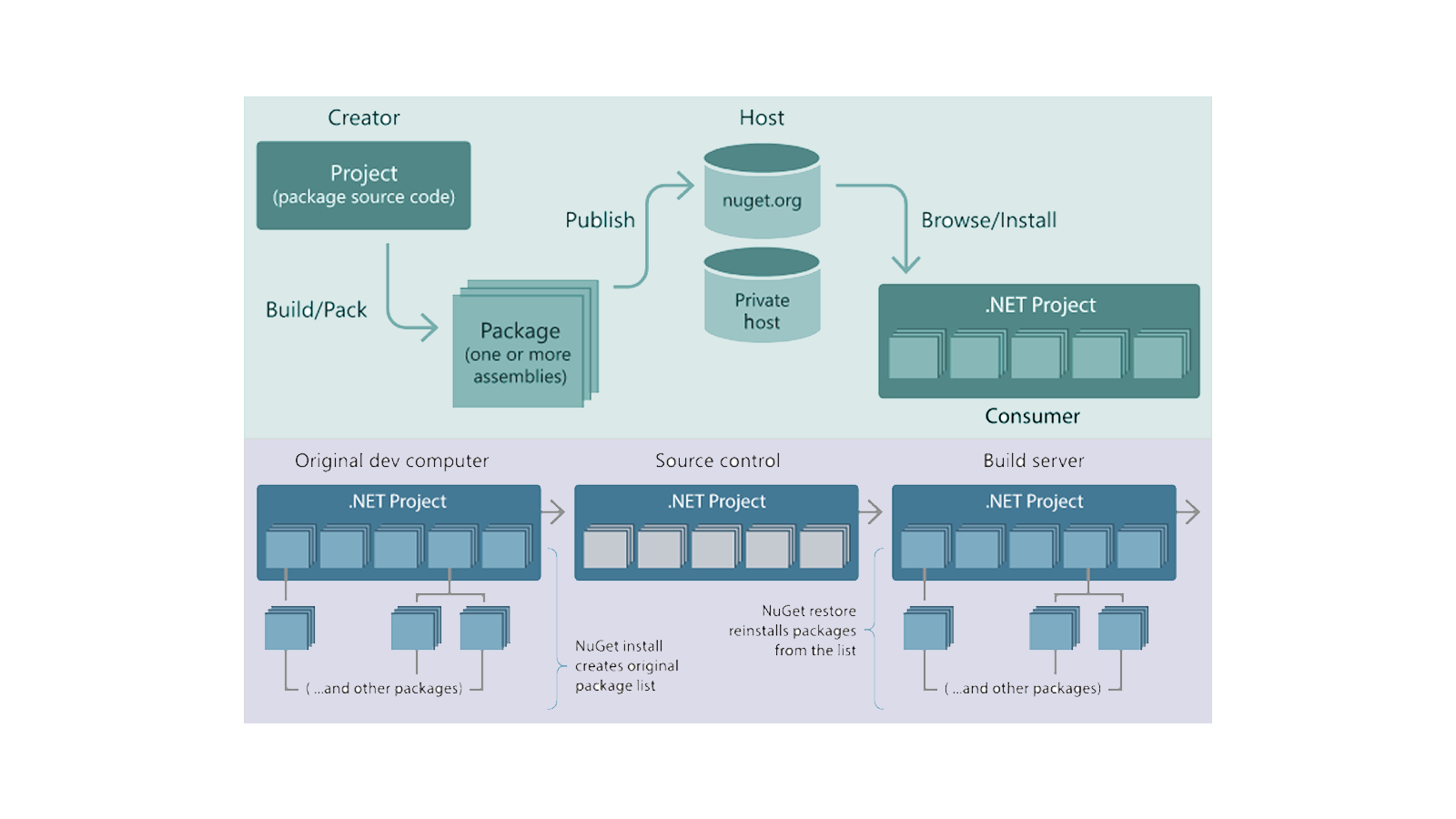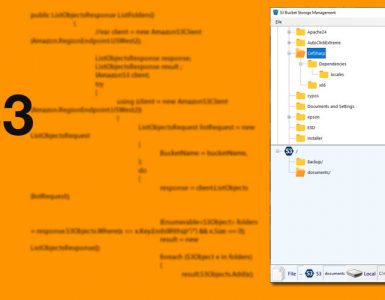A comprehensive introduction to what NuGet is and does
An essential tool for any modern development platform is a mechanism through which developers can create, share, and consume useful code. Often such code is bundled into “packages” that contain compiled code (as DLLs) along with other content needed in the projects that consume these packages.
For .NET (including .NET Core), the Microsoft-supported mechanism for sharing code is NuGet, which defines how packages for .NET are created, hosted, and consumed, and provides the tools for each of those roles.
Put simply, a NuGet package is a single ZIP file with the .nupkg extension that contains compiled code (DLLs), other files related to that code, and a descriptive manifest that includes information like the package’s version number. Developers with code to share create packages and publish them to a public or private host. Package consumers obtain those packages from suitable hosts, add them to their projects, and then call a package’s functionality in their project code. NuGet itself then handles all of the intermediate details.
Because NuGet supports private hosts alongside the public nuget.org host, you can use NuGet packages to share code that’s exclusive to an organization or a workgroup. You can also use NuGet packages as a convenient way to factor your own code for use in nothing but your own projects. In short, a NuGet package is a shareable unit of code but does not require nor imply any particular means of sharing.





